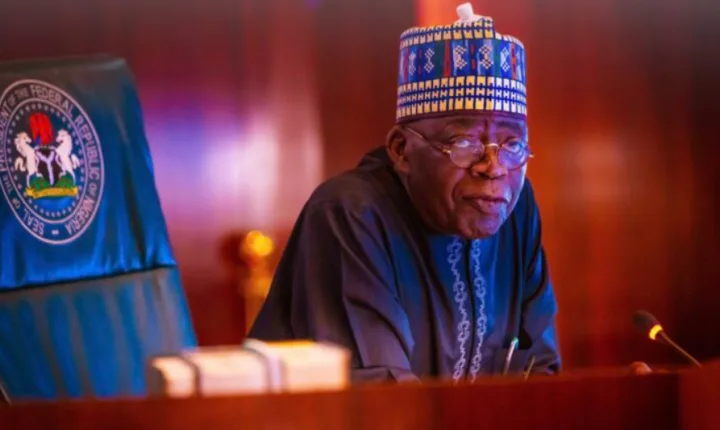President Bola Ahmed Tinubu has expressed confidence in Nigeria’s ability to transform into a $1 trillion economy through strategic reforms and sustained investments. Speaking at a high-level economic forum in Abuja, the President outlined his administration’s vision for unlocking Nigeria’s vast economic potential and positioning it as a leading player in Africa and the global market.
Driving Factors for Economic Growth
President Tinubu emphasized several pillars that could drive Nigeria towards the trillion-dollar mark:
- Economic Diversification:
The administration aims to reduce dependence on oil by boosting sectors like agriculture, manufacturing, technology, and renewable energy. This approach seeks to create a more balanced and resilient economy. - Infrastructure Development:
Tinubu stressed the need for massive investments in critical infrastructure, including transportation, energy, and digital networks, to support industrial growth and attract foreign direct investment (FDI). - Policy Reforms:
Recent reforms, such as the removal of fuel subsidies and the liberalization of the foreign exchange market, were highlighted as foundational steps to stabilize the economy and create a conducive environment for growth.

- Human Capital Investment:
The government plans to prioritize education and skills development to equip Nigerians for emerging industries and enhance productivity. - Private Sector Participation:
Tinubu called on the private sector to partner with the government in driving innovation, funding infrastructure projects, and expanding job opportunities.
Challenges and Opportunities
While the ambition is bold, analysts have pointed out several hurdles, including insecurity, corruption, and inadequate infrastructure. Tinubu acknowledged these challenges, assuring Nigerians of his administration’s commitment to tackling them head-on.
“With strong policies, collaboration, and the resilience of our people, we can overcome our obstacles and build an economy that works for all Nigerians,” he said.
Stakeholder Reactions
Economic experts have lauded the vision but cautioned that achieving it will require consistent implementation of policies, political stability, and improved governance.
“Nigeria has the resources and demographic advantage to become a $1 trillion economy, but the government must ensure reforms are inclusive and address systemic inefficiencies,” said Dr. Ifeanyi Okonkwo, an economist and policy analyst.
Private sector leaders have also expressed optimism, noting the opportunities for growth in key industries. They urged the government to continue creating an enabling environment for businesses to thrive.
Path Forward
Tinubu’s administration is set to unveil a roadmap detailing the steps toward achieving the $1 trillion economy milestone. The plan will include timelines, funding strategies, and measurable benchmarks to track progress.
If realized, Nigeria’s transition to a $1 trillion economy would position it as a dominant force in Africa, catalyze development, and improve living standards for millions of citizens. While the journey will not be without challenges, the commitment to bold reforms and inclusive growth signals a promising path forward.
Support InfoStride News' Credible Journalism: Only credible journalism can guarantee a fair, accountable and transparent society, including democracy and government. It involves a lot of efforts and money. We need your support. Click here to Donate
